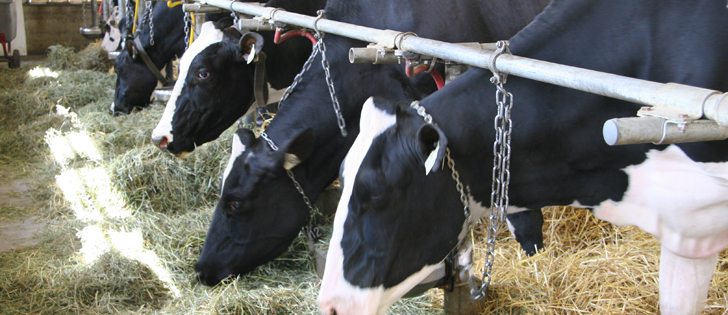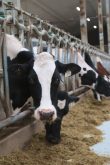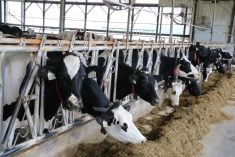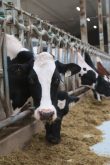Federal agriculture minister announced $350 million in programs to boost productivity and competitiveness
Canadian dairy farmers and processors say a federal innovation package announced last week is only one step toward helping the sector cope with the challenges of trade deals.
The organizations representing the industry said $350 million is welcome, but it may take more than that to mitigate the effects of trade.
Agriculture Minister Lawrence MacAulay announced two programs he said would boost productivity and competitiveness: $250 million over five years for producers and $100 million over four years for processors so both can update technology and equipment.
“It’s going to put the farmers and the processors on the cutting edge, and that’s where we want them,” he said.
Read Also

Farming Smarter receives financial boost from Alberta government for potato research
Farming Smarter near Lethbridge got a boost to its research equipment, thanks to the Alberta government’s increase in funding for research associations.
Dairy Farmers of Canada said the programs would improve the industry for the benefit of all Canadians.
“However, this only partially addresses the damage that will be caused by the (Canada-European Union) Comprehensive Economic and Trade Agreement,” the organization said in a statement.
Just days before the 2015 federal election vote, the then-Conservative government announced a $4.3 billion program for all supply managed sectors to compensate them for CETA and the Trans-Pacific Partnership.
The Liberal government expects CETA to come into force in 2017. The TPP is less certain.
Ralph Dietrich, chair of Dairy Farmers of Ontario and a DFC board member, said the question of whether the compensation is enough might be answered as the program is designed.
“The government did acknowledge that this is not everything,” he said. “This is just for CETA.”
DFC has estimated that CETA will cost Canadian farmers up to $116 million a year. Europe will gain tariff-free access for an extra 17,700 tonnes of cheese, which represents about two percent of Canada’s milk production.
Dietrich said he expects consultations over the next few weeks to develop the program because Ottawa promised it would be ready to go as soon as CETA comes into force.
“My hope is that it’s got some flexibility to it, some adaptability.”
For example, dairy farmers who have already upgraded operations to include robotic milkers may not see immediate value in the program. However, Dietrich, who has already upgraded his milking system, said no program will ever be completely fair.
“Technology is continuously changing,” he said.
“A farm that was right up to speed five years ago, even that farm would have opportunities to advance.”
The Dairy Processors Association of Canada estimates CETA’s impact on processors at $230 million per year, plus additional losses in jobs and other parts of the economy.
The government has been consulting on new cheese tariff rate quotas, and DPAC said they must be assigned to the processing sector.
“With CETA, our domestic cheese will be displaced by European ones,” said chief executive officer Jacques Lefebvre.
“The potential impact on jobs and investments is real.”
NDP agriculture critic Ruth Ellen Brosseau said the compensation doesn’t go far enough.
“What angers me about this announcement is that, once again, the Liberals promised change but, in the end, it’s just more of the same,” she said in a news release.
“They voted for my motion calling for the dairy industry to be compensated fairly for its CETA losses, but the amount they announced today is nowhere near enough to truly make up for the ongoing losses farmers will suffer.”
However, MacAulay said he believes $350 million is enough.
“My jobs as minister of agriculture and agri-food was to sit down with the dairy sector, processors and farmers and come up with a package, and I think you will find that processors and farmers are quite pleased with what we came up with,” he said.


















